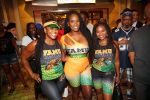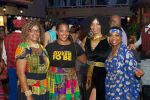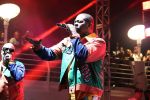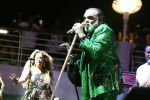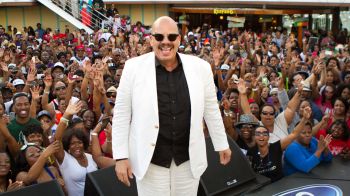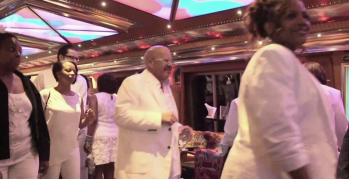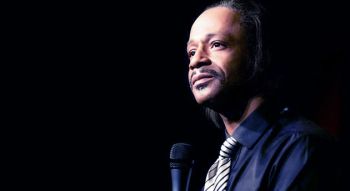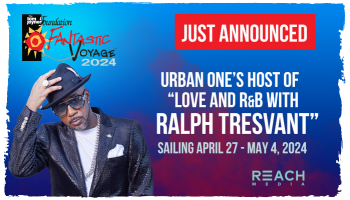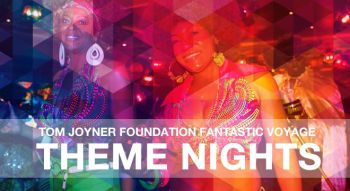John Legend has revealed several personas during his award-winning career. Singer/Songwriter. Musician. Producer. Philanthropist. Entrepreneur. To quote music industry pioneer Quincy Jones, the nine-time Grammy winner is simply “a genius.”
Writing about Legend for Time’s 2009 tally of the 100 most influential people, Jones noted, “We’ve seen only the tip of the iceberg. For what he has already achieved in his career, it is going to be fun watching where he goes from here.”
The fun begins now. Legend, one of the industry’s most innovative artists, returns after five years with his much-anticipated fourth solo album, Love in the Future (G.O.O.D/Columbia). Taking R&B/soul to the next level, Legend creates an immersive experience about romance, love, hope, commitment and optimism. Enhancing the experience: a rich, melodic soundscape–accented by compelling interludes–that fully integrates the musician’s gospel and pop influences, classical training and unerring hip-hop/soul sensibilities.
Love in the Future is a celebration and meditation on love,” says Legend. “I was envisioning what a modern soul album should sound like; wanting to create something compelling. Even in these single-driven days, I still want to reinforce the idea of listening to an album as a whole piece of work.”
Legend first whet fans’ appetites with the album’s lead single, “Who Do We Think We Are” featuring Rick Ross. Its soulful grit and live-life-to-the-fullest theme shot the track to the top of the R&B/hip-hop charts. Now second single “Made to Love,“ is repeating the same trajectory. A progressive blend of soul, classical and ‘80s/’90s Chicago house music, the song is complemented by the ethereal vocals of singer/songwriter Kimbra. The track, co-produced by Kanye West, is also featured in Chevrolet’s current Impala ad campaign.
Back as sounding boards and executive producers for this album are longtime Legend collaborators West, who signed Legend to his G.O.O.D Music in 2004, and Dave Tozer. Enhancing the album’s vibrancy: first-time production collaborations with Q-Tip, 88 Keys, No ID, Bink, Hit-Boy, Da Internz and DJ Camper. Contributing writers include the aforementioned Kimbra and James Fauntleroy.
From start to finish, Love in the Future pulsates with a stripped-down urgency that perfectly showcases Legend’s skills as a musician, lyricist and vocalist. The supple tenor sets the mood with an engaging cover of Bobby Caldwell’s “Open Your Eyes,” then sings about seizing the moment on the Q-Tip collaboration “Tomorrow.” Legend conjures ‘70s Stevie Wonder with the synth-infused “Hold on Longer.” Then the impending groom discourses on the subject of love with the penetrating “You and I” and “All of Me.” Worthy enough to stand on its own as a full track is Legend’s mesmerizing interstitial take on Anita Baker’s “Angel” with newcomer Stacy Barthe.
“As an artist, you don’t want to entirely go back to where you started,” says Legend. “While this album is polished, it still reminds me of the gritty hip-hop soul I did when I first started. I loved working with my core team but also mixing in these fresh collaborations. While it has the feel of my first two albums, Love in the Future takes that sound forward.”
The Ohio native and University of Pennsylvania graduate rocketed to stardom with his Columbia debut Get Lifted. The 2004 platinum set scored eight Grammy Award nominations for the former session player and vocalist (backing Lauryn Hill, Alicia Keys, Jay-Z, and Kanye West). Legend later won the first three of his nine Grammys: best new artist, best R&B album and best male R&B vocal performance for the hit single “Ordinary People.” Two years later came his second platinum album, Once Again, with the Grammy-winning single “Heaven.” Legend snared his third consecutive top 10 album with 2008’s Evolver, spinning off the hit “Green Light” featuring Andre 3000.
Since Evolver, Legend has collaborated with Rick Ross (“Magnificent,” “Rich Forever”), among others, and teamed with The Roots on 2010’s Wake Up! The album featured reinterpretations of socially conscious songs from the ‘60s and ‘70s, including Bill Withers’ “I Can’t Write Left-Handed.” Wake Up! netted Legend three more Grammys, including best R&B album and best R&B song for his original composition “Shine.” That track was also featured in Academy Award-winning director Davis Guggenheim’s domestic education reform documentary Waiting for Superman.
Legend’s soundtrack credits also include two 2012 box-office hits. For the film version of Steve Harvey’s best-selling book, Think Like a Man, the singer/songwriter contributed the Grammy-nominated “Tonight (Best You’ve Ever Had)” featuring Ludacris. Then Legend took a bluesy turn on “Who Did That to You,” an anthem featured in Academy Award-winning writer/director Quentin Tarantino’s critically acclaimed film Django Unchained.
Noting “there’s always more to do,” Legend established his own imprint/production company, HomeSchool Entertainment, in 2007. Its roster includes Motown-signed singer/songwriter Stacy Barthe, songwriting duo Phatboiz and management client/producer DJ Camper.
Giving back is another constant in Legend’s life. He serves on several boards, including the Equality Project, Stand for Children, Teach For America, the Harlem Village Academies and PopTech, a unique innovation network dedicated to accelerating the positive impact of world-changing people, projects and ideas. Legend also doubles as the national spokesperson for Management Leadership for Tomorrow, a non-profit organization that assists the next generation of minority business leaders. In partnership with Samsung, he supports education initiatives with a special focus on science, technology, engineering and mathematics (STEM). A 2010 BET Humanitarian of the Year honoree, among other accolades, Legend launched his own education-based organization, the Show Me Campaign (ShowMeCampaign.org), in 2007.
Currently preparing to launch his long-awaited North American tour in October on behalf of Love in the Future, Legend says, “Anyone who knows me knows that I have an optimistic outlook on life. And you can hear that in the tone of the album’s tracks. I live and breathe music.”



